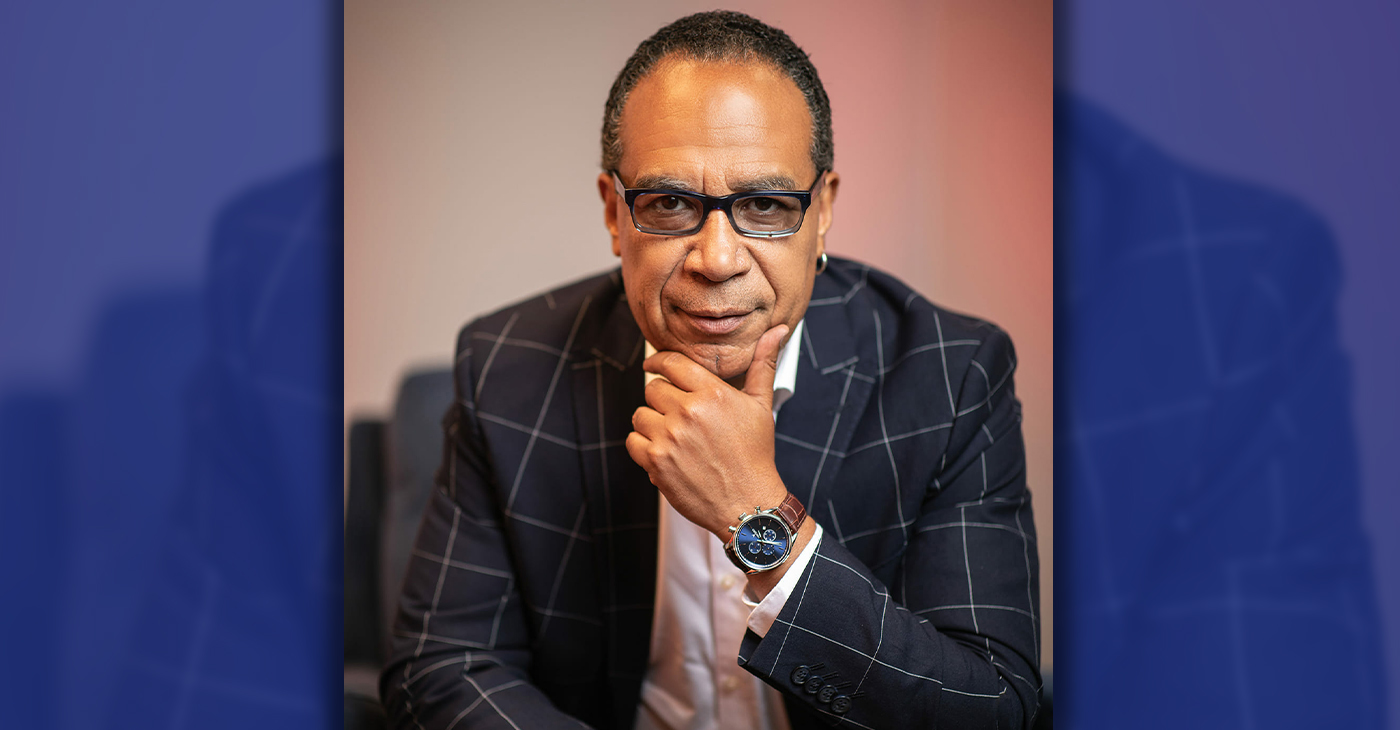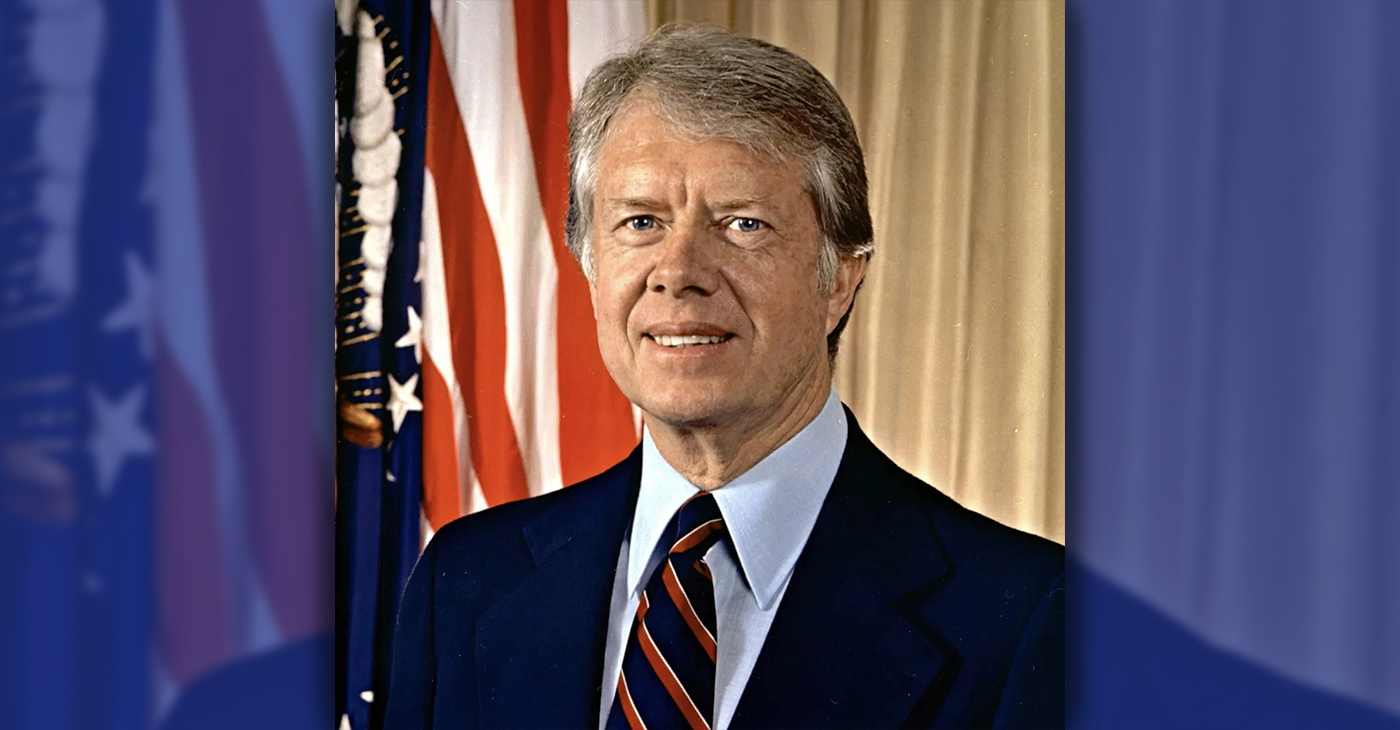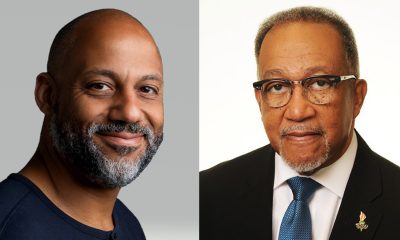Politics
In a Bind, Republicans Offer Vote on Homeland Security Bill

Senate Minority Leader Harry Reid of Nev. pauses during a news conference on Capitol Hill, Tuesday, Feb. 24, 2015, to urge Republicans to support a “clean bill” to fund the Homeland Security Department as that agencies budget expires later this week. The DHS budget is at a standstill over provisions attached to a Homeland Security spending bill aimed at blocking President Barack Obama’s executive actions on immigration. (AP Photo/J. Scott Applewhite)
DAVID ESPO, Associated Press
ERICA WERNER, Associated Press
WASHINGTON (AP) — A partial agency shutdown looming, Senate Republicans offered Tuesday to permit a vote on Homeland Security funding legislation stripped of immigration provisions backed by conservatives but strongly opposed by President Barack Obama and fellow Democrats.
“We could have that vote very quickly,” Majority Leader Mitch McConnell, R-Ky., said as his party struggled to escape a political predicament of their own making involving an agency with major anti-terrorism responsibilities.
McConnell said he did not know how the Republican-controlled House would respond if a stand-alone spending bill passed the Senate. Underscoring the realities of divided government, Senate Democratic leader Harry Reid of Nevada initially said he wouldn’t agree to the proposal unless it had the backing of House Speaker John Boehner, in a sign it would be likely to clear the House.
With House Republicans scheduled to meet privately Wednesday to discuss the issue, Boehner’s office issued a statement that neither accepted nor rejected the proposal McConnell outlined to end weeks of gridlock.
“The speaker has been clear: The House has acted, and now Senate Democrats need to stop hiding. Will they continue to block funding for the Department of Homeland Security or not?” said Boehner spokesman Michael Steel.
Some House conservatives criticized the proposal, but one lawmaker allied with the leadership predicted it might win approval. Noting that a federal judge in Texas has issued an order blocking implementation of Obama’s plan to shield millions of immigrants from deportation, Rep. Tom Cole of Oklahoma said the court had “effectively stopped the president’s executive action,” at least for now. “So I don’t think we’d run the risk of shutting down Homeland Security,” he added.
Even in the Senate, though, McConnell’s plan had its GOP critics.
Texas Sen. Ted Cruz, a tea party favorite and potential 2016 presidential contender, called it a mistake. “Congress is obliged to use every constitutional check and balance we have to rein in President Obama’s lawlessness,” he said in a statement.
Senate Republican officials said McConnell’s offer of a vote on a stand-alone funding bill also envisions a vote on a separate measure to repeal a directive from Obama last fall that shields about 4 million immigrants from deportation even though they live in the United States illegally. That measure would almost certainly fail in the Senate at the hands of Democrats.
At the same time, the proposal would eliminate an attempt by the House to repeal an earlier presidential order that allows tens of thousands of immigrants to remain in the country if they were brought here illegally as youngsters by their parents. Officials said Boehner’s office had been informed of McConnell’s plans before they were made public.
The maneuvering occurred as the president’s party raised the specter of terrorism and the Republicans countered that it was the Democrats who were preventing an orderly renewal of funding for the Homeland Security Department.
At a news conference a few hours before McConnell spoke, Sen. Amy Klobuchar, D-Minn., urged Republicans to “fund our security and not to send a message to al-Shabab that we’re going to shut down Homeland Security.”
Klobuchar’s state is home to the Mall of America, an enormous facility that was singled out as a potential terror target in a video released by al-Shabab, an Islamic militant group linked to the al-Qaida terrorist network. Homeland Security Secretary Jeh Johnson has urged anyone considering a trip to the shopping mall to be particularly careful.
For their part, Republicans sought to pin the blame on Democrats, pointing out they blocked Senate action four times on the combined funding-immigration bill.
They also accused Reid of shifting his demands after first seeking a vote on a stand-alone spending bill, then refraining from accepting McConnell’s offer.
In response, Democrats seemed to backtrack, suggesting they may well sign on to McConnell’s offer whether or not Boehner does.
But even Republicans said privately that they needed to put an end to a controversy that was likely to turn out badly for them.
The current stand-off dates to last fall, when Boehner told fellow Republicans they should allow the funding of Homeland Security without conditions until after the elections. By then, he said, Republicans would have more leverage to force a rollback in the president’s immigration policy.
Republicans won control of the Senate, but they lack the 60 votes needed to overcome Democratic blocking actions. As a result, they have been unable to force a vote on House-passed DHS funding legislation that includes the repeal of the immigration policies Obama put into effect in 2012 and last fall.
Among some Republicans, there was recognition that McConnell was offering as graceful a way out as possible.
“I just don’t know how we do it any other way,” said Sen. Lindsey Graham, R-S.C.
___
Associated Press writers Andrew Taylor, Steven Ohlemacher and Chuck Babington contributed to this report.
Copyright 2015 The Associated Press. All rights reserved. This material may not be published, broadcast, rewritten or redistributed.
Activism
2024 in Review: 7 Questions for Equality California Political Director Shay Franco-Clausen
Shay Franco-Clausen is an award-winning public advocate, speaker, political strategist and former elected official. She has contributed her thought leadership to drafting seventeen pieces of legislation in California. Notable among these accomplishments is her role in extending the statute of limitations for felony domestic violence survivors, advocating for the rights of foster youth, preserving endangered open spaces, and championing the restoration of voting rights for individuals on parole.

By Edward Henderson, California Black Media
Shay Franco-Clausen is Political Director for Equality California, the nation’s largest statewide LGBTQ+ civil rights organization.
Franco-Clausen is an award-winning public advocate, speaker, political strategist and former elected official. She has contributed her thought leadership to drafting seventeen pieces of legislation in California. Notable among these accomplishments is her role in extending the statute of limitations for felony domestic violence survivors, advocating for the rights of foster youth, preserving endangered open spaces, and championing the restoration of voting rights for individuals on parole.
California Black Media (CBM) spoke with Franco-Clausen about her successes, frustrations and future plans heading into 2025.
Looking back at 2024, what stands out to you as your most important achievement and why?
In the role that I sit in as the political director for Equality California, we endorsed 216 candidates. I think the one achievement after this election that I’m proud of is that we overturned Prop 8 to protect same-sex marriages here because they’re about to attack our rights on the federal level, come 2025.
I’m glad at least we changed our California constitution to reflect and protect my marriage.
How did your leadership and investments contribute to improving the lives of Black Californians?
I contribute through my lived experience. I may have achieved a lot, but I come from those same communities that are marginalized, East Oakland, East San Jose, Watts. It gives me a different perspective. I am a formerly incarcerated youth who was in foster care. I think I contribute that bit of understanding, and I operate from an equity lens. I’m willing to push people to make them recognize that hey, you cannot forget about Black people. We are the most marginalized.
What frustrated you the most over the last year?
What frustrates me is our inability to recognize that we forget people. I was tapped to work on the Harris campaign from Equality California. And through that, being at that table, I was frustrated that they weren’t listening to Americans and not looking at the data.
The reason Trump won is because he had consistent messaging, and we didn’t debunk it. I think I’m more frustrated that we don’t fully listen to people all the time when they’re critiquing us.
What inspired you the most over the last year?
All those people that came out to support Kamala Harris. I was proud that my son voted for the first time for a Black woman for President.
What is one lesson you learned in 2024 that will inform your decision-making next year?
Be fearless. Sometimes I second-guess myself. I push back, but I could push more because I’m qualified. I have the education, I have the experience, and I know what I’m talking about in all the rooms that I go in. And I must be confident in that.
In one word, what is the biggest challenge Black Californians face?
Prioritization.
We’re still not seen as a priority, but everyone likes to add us to their talking points.
What is the goal you want to achieve most in 2025?
Writing a book. I think it’s important for us to tell our stories.
I am also kicking off my campaign for Hayward City Council.
Activism
2024 in Review: 7 Questions for California Black Chamber of Commerce CEO Jay King
Jay King is also a member of the popular 1980s R&B group Club Nouveau. In his role as an artist and activist, he has stood up for issues affecting underrepresented Californians for over three decades. As the President of the CBCC, King says he is determined to put his mark on developing and expanding the capacity of African American businessmen and women.

By Edward Henderson, California Black Media
Grammy Award-winning singer and record label executive, Jay King, was elected CEO/President of the California Black Chamber of Commerce (CBCC) in June of 2019.
The CBCC is the largest African American non-profit business organization, representing thousands of small and emerging businesses, affiliates, and chambers of commerce throughout California.
King is also a member of the popular 1980s R&B group Club Nouveau. In his role as an artist and activist, he has stood up for issues affecting underrepresented Californians for over three decades.
As the President of the CBCC, King says he is determined to put his mark on developing and expanding the capacity of African American businessmen and women.
California Black Media (CBM) spoke with King recently. He reflected on the Chamber’s accomplishments, disappointments, lessons learned this year, and goals moving forward.
Looking back at 2024, what stands out as your most important achievement and why?
Making the voices of micro and mini-micro businesses loud, forcing policymakers and other decision makers across the state to pay attention to them. With legislation in place now — AB 1574 and AB 2019 – that mandates that the state and agencies affiliated with the state extend opportunities to micro and mini business owners and give them a chance to participate in government contracting in a real way.
How did your leadership and investments contribute to improving the lives of Black Californians?
I really want to contribute to the world and the state of Black businesses because of the systemic inequities in the past.
Small business, micro businesses and mini businesses are too often overlooked.
I think it would be egotistical to believe that I make any significant impact on my own. Whether it’s the Asian Chamber, Hispanic Chamber and other organizations that are fighting the same fight. I think it’s a collective, so I’m proud to be part of the collective.
What frustrated you the most over the last year?
We say we want to give access to capital to small businesses, yet we continue to create barriers that deny them access.
What inspired you the most over the last year?
Watching some of the small business owners that we worked with — these micro businesses — and seeing the potential and the power that is in front of us.
What is one lesson you learned in 2024 that will inform your decision-making next year?
We have to fight for Black business owners, but they also have to be prepared; because if they’re not, it affects us all down the line.
In one word, what is the biggest challenge Black Californians face?
Self-belief. I think we have been conditioned on victimization and victimhood. We think that if we don’t get the help we need that we will falter.
What is the goal you want to achieve most in 2025?
I want to change the trajectory of micro and mini business owners.
Activism
COMMENTARY: My Sunday School Lesson with President Jimmy Carter
When I saw him, Carter was spry, quick-witted, and kind. The former president wore a bolo string tie anchored by an eight-stone turquoise clasp that dangled below the neck, as he began the lesson on the subject of grief and the death of his 28-year-old grandson. Drawing from scripture (on this particular day, a passage on the persecution of the Thessalonians), Carter said such moments were simply tests of one’s faith, endurance, and hope.

By Emil Guillermo
President Jimmy Carter, at age 100, didn’t make it to the new year, nor the next presidential inaugural.
I’ve always been a big Carter fan, so the news of his passing brought me back to a happy place.
Plains, Georgia, 2016.
I was visiting family not far from the land of presidential peanut farmers. I found myself the only full-blooded Filipino in the room at Maranatha Baptist Church, the spiritual home base for the esteemed No. 39.
President Carter looked fine that Sunday in Plains. But especially fine for his job on that day– to give the Sunday school lesson on what coincidentally was the 15th anniversary of 9/11.
Carter’s health made headlines in 2015 when he disclosed having both brain and liver cancer. It was thought he had just two or three weeks to live.
Everyone’s always underestimating Carter. After treatments, Carter’s forecast turned out not to be true.
When I saw him, Carter was spry, quick-witted, and kind. The former president wore a bolo string tie anchored by an eight-stone turquoise clasp that dangled below the neck, as he began the lesson on the subject of grief and the death of his 28-year-old grandson. Drawing from scripture (on this particular day, a passage on the persecution of the Thessalonians), Carter said such moments were simply tests of one’s faith, endurance, and hope.
“We lack inspiration, we lack the idealism to set our goals high. We’ve been satisfied with mediocrity. And I include myself,” Carter said. People want an average life, instead of aspiring to be, “outstanding, or superb or brilliant or exceptional.”
“I’m afraid that our country and its effect on people of other nations has suffered from the aftermath of 9/11,” Carter said. He “didn’t want to brag,” but said his goal for the country was always to be “superb and be a country that promoted peace and human rights…While I was in office, we never dropped a bomb, lost a missile, or fired a bullet.”
“Since 9/11,” Carter said, “we’ve pretty much abandoned our commitment to human rights as we reacted to terrorism.” He lamented that Afghanistan had become the longest war in American history, a direct outcome of 9/11, as well as the invasion of Iraq, which Carter called “unnecessary.”
Carter, whose administration took us out of an energy crisis, also pointed out how the U.S. is still suffering from a financial crisis that has exposed a deep inequality that has divided us as a people.
“We’ve become distrustful of people who are different from us,” Carter said. “We used to be a proud heterogeneous nation…and now we are fearful…and we’ve become poorer as a country.”
Carter won a Nobel Peace Prize in 2002; a fact that belies how many conservatives view his efforts to find a peace in the Middle East as “anti-Semitic.”
Jimmy Carter’s worldview requires open minds to come together. Too often. these days, that seems nearly impossible.
About the Author
Emil Guillermo is a journalist and commentator He was the first Filipino American to host a national news show in 1989 at NPR’s “All Things Considered.” See Emil Amok’s Takeout on www.patreon.com/emilamok Subscribe to him on YouTube.com/@emilamok1
-

 Activism2 weeks ago
Activism2 weeks agoBooks for Ghana
-

 Activism4 weeks ago
Activism4 weeks agoPost News Group to Host Second Town Hall on Racism, Hate Crimes
-

 Arts and Culture3 weeks ago
Arts and Culture3 weeks agoPromise Marks Performs Songs of Etta James in One-Woman Show, “A Sunday Kind of Love” at the Black Repertory Theater in Berkeley
-

 Activism4 weeks ago
Activism4 weeks agoButler, Lee Celebrate Passage of Bill to Honor Congresswoman Shirley Chisholm with Congressional Gold Medal
-

 Activism3 weeks ago
Activism3 weeks ago‘Donald Trump Is Not a God:’ Rep. Bennie Thompson Blasts Trump’s Call to Jail Him
-

 Activism4 weeks ago
Activism4 weeks agoDelta Sigma Theta Alumnae Chapters Host World AIDS Day Event
-

 Business4 weeks ago
Business4 weeks agoLandlords Are Using AI to Raise Rents — And California Cities Are Leading the Pushback
-

 Bay Area2 weeks ago
Bay Area2 weeks agoGlydways Breaking Ground on 14-Acre Demonstration Facility at Hilltop Mall
Politics
In a Bind, Republicans Offer Vote on Homeland Security Bill

Senate Minority Leader Harry Reid of Nev. pauses during a news conference on Capitol Hill, Tuesday, Feb. 24, 2015, to urge Republicans to support a “clean bill” to fund the Homeland Security Department as that agencies budget expires later this week. The DHS budget is at a standstill over provisions attached to a Homeland Security spending bill aimed at blocking President Barack Obama’s executive actions on immigration. (AP Photo/J. Scott Applewhite)
DAVID ESPO, Associated Press
ERICA WERNER, Associated Press
WASHINGTON (AP) — A partial agency shutdown looming, Senate Republicans offered Tuesday to permit a vote on Homeland Security funding legislation stripped of immigration provisions backed by conservatives but strongly opposed by President Barack Obama and fellow Democrats.
“We could have that vote very quickly,” Majority Leader Mitch McConnell, R-Ky., said as his party struggled to escape a political predicament of their own making involving an agency with major anti-terrorism responsibilities.
McConnell said he did not know how the Republican-controlled House would respond if a stand-alone spending bill passed the Senate. Underscoring the realities of divided government, Senate Democratic leader Harry Reid of Nevada initially said he wouldn’t agree to the proposal unless it had the backing of House Speaker John Boehner, in a sign it would be likely to clear the House.
With House Republicans scheduled to meet privately Wednesday to discuss the issue, Boehner’s office issued a statement that neither accepted nor rejected the proposal McConnell outlined to end weeks of gridlock.
“The speaker has been clear: The House has acted, and now Senate Democrats need to stop hiding. Will they continue to block funding for the Department of Homeland Security or not?” said Boehner spokesman Michael Steel.
Some House conservatives criticized the proposal, but one lawmaker allied with the leadership predicted it might win approval. Noting that a federal judge in Texas has issued an order blocking implementation of Obama’s plan to shield millions of immigrants from deportation, Rep. Tom Cole of Oklahoma said the court had “effectively stopped the president’s executive action,” at least for now. “So I don’t think we’d run the risk of shutting down Homeland Security,” he added.
Even in the Senate, though, McConnell’s plan had its GOP critics.
Texas Sen. Ted Cruz, a tea party favorite and potential 2016 presidential contender, called it a mistake. “Congress is obliged to use every constitutional check and balance we have to rein in President Obama’s lawlessness,” he said in a statement.
Senate Republican officials said McConnell’s offer of a vote on a stand-alone funding bill also envisions a vote on a separate measure to repeal a directive from Obama last fall that shields about 4 million immigrants from deportation even though they live in the United States illegally. That measure would almost certainly fail in the Senate at the hands of Democrats.
At the same time, the proposal would eliminate an attempt by the House to repeal an earlier presidential order that allows tens of thousands of immigrants to remain in the country if they were brought here illegally as youngsters by their parents. Officials said Boehner’s office had been informed of McConnell’s plans before they were made public.
The maneuvering occurred as the president’s party raised the specter of terrorism and the Republicans countered that it was the Democrats who were preventing an orderly renewal of funding for the Homeland Security Department.
At a news conference a few hours before McConnell spoke, Sen. Amy Klobuchar, D-Minn., urged Republicans to “fund our security and not to send a message to al-Shabab that we’re going to shut down Homeland Security.”
Klobuchar’s state is home to the Mall of America, an enormous facility that was singled out as a potential terror target in a video released by al-Shabab, an Islamic militant group linked to the al-Qaida terrorist network. Homeland Security Secretary Jeh Johnson has urged anyone considering a trip to the shopping mall to be particularly careful.
For their part, Republicans sought to pin the blame on Democrats, pointing out they blocked Senate action four times on the combined funding-immigration bill.
They also accused Reid of shifting his demands after first seeking a vote on a stand-alone spending bill, then refraining from accepting McConnell’s offer.
In response, Democrats seemed to backtrack, suggesting they may well sign on to McConnell’s offer whether or not Boehner does.
But even Republicans said privately that they needed to put an end to a controversy that was likely to turn out badly for them.
The current stand-off dates to last fall, when Boehner told fellow Republicans they should allow the funding of Homeland Security without conditions until after the elections. By then, he said, Republicans would have more leverage to force a rollback in the president’s immigration policy.
Republicans won control of the Senate, but they lack the 60 votes needed to overcome Democratic blocking actions. As a result, they have been unable to force a vote on House-passed DHS funding legislation that includes the repeal of the immigration policies Obama put into effect in 2012 and last fall.
Among some Republicans, there was recognition that McConnell was offering as graceful a way out as possible.
“I just don’t know how we do it any other way,” said Sen. Lindsey Graham, R-S.C.
___
Associated Press writers Andrew Taylor, Steven Ohlemacher and Chuck Babington contributed to this report.
Copyright 2015 The Associated Press. All rights reserved. This material may not be published, broadcast, rewritten or redistributed.
Activism
2024 in Review: 7 Questions for Equality California Political Director Shay Franco-Clausen
Shay Franco-Clausen is an award-winning public advocate, speaker, political strategist and former elected official. She has contributed her thought leadership to drafting seventeen pieces of legislation in California. Notable among these accomplishments is her role in extending the statute of limitations for felony domestic violence survivors, advocating for the rights of foster youth, preserving endangered open spaces, and championing the restoration of voting rights for individuals on parole.

By Edward Henderson, California Black Media
Shay Franco-Clausen is Political Director for Equality California, the nation’s largest statewide LGBTQ+ civil rights organization.
Franco-Clausen is an award-winning public advocate, speaker, political strategist and former elected official. She has contributed her thought leadership to drafting seventeen pieces of legislation in California. Notable among these accomplishments is her role in extending the statute of limitations for felony domestic violence survivors, advocating for the rights of foster youth, preserving endangered open spaces, and championing the restoration of voting rights for individuals on parole.
California Black Media (CBM) spoke with Franco-Clausen about her successes, frustrations and future plans heading into 2025.
Looking back at 2024, what stands out to you as your most important achievement and why?
In the role that I sit in as the political director for Equality California, we endorsed 216 candidates. I think the one achievement after this election that I’m proud of is that we overturned Prop 8 to protect same-sex marriages here because they’re about to attack our rights on the federal level, come 2025.
I’m glad at least we changed our California constitution to reflect and protect my marriage.
How did your leadership and investments contribute to improving the lives of Black Californians?
I contribute through my lived experience. I may have achieved a lot, but I come from those same communities that are marginalized, East Oakland, East San Jose, Watts. It gives me a different perspective. I am a formerly incarcerated youth who was in foster care. I think I contribute that bit of understanding, and I operate from an equity lens. I’m willing to push people to make them recognize that hey, you cannot forget about Black people. We are the most marginalized.
What frustrated you the most over the last year?
What frustrates me is our inability to recognize that we forget people. I was tapped to work on the Harris campaign from Equality California. And through that, being at that table, I was frustrated that they weren’t listening to Americans and not looking at the data.
The reason Trump won is because he had consistent messaging, and we didn’t debunk it. I think I’m more frustrated that we don’t fully listen to people all the time when they’re critiquing us.
What inspired you the most over the last year?
All those people that came out to support Kamala Harris. I was proud that my son voted for the first time for a Black woman for President.
What is one lesson you learned in 2024 that will inform your decision-making next year?
Be fearless. Sometimes I second-guess myself. I push back, but I could push more because I’m qualified. I have the education, I have the experience, and I know what I’m talking about in all the rooms that I go in. And I must be confident in that.
In one word, what is the biggest challenge Black Californians face?
Prioritization.
We’re still not seen as a priority, but everyone likes to add us to their talking points.
What is the goal you want to achieve most in 2025?
Writing a book. I think it’s important for us to tell our stories.
I am also kicking off my campaign for Hayward City Council.
Activism
2024 in Review: 7 Questions for California Black Chamber of Commerce CEO Jay King
Jay King is also a member of the popular 1980s R&B group Club Nouveau. In his role as an artist and activist, he has stood up for issues affecting underrepresented Californians for over three decades. As the President of the CBCC, King says he is determined to put his mark on developing and expanding the capacity of African American businessmen and women.

By Edward Henderson, California Black Media
Grammy Award-winning singer and record label executive, Jay King, was elected CEO/President of the California Black Chamber of Commerce (CBCC) in June of 2019.
The CBCC is the largest African American non-profit business organization, representing thousands of small and emerging businesses, affiliates, and chambers of commerce throughout California.
King is also a member of the popular 1980s R&B group Club Nouveau. In his role as an artist and activist, he has stood up for issues affecting underrepresented Californians for over three decades.
As the President of the CBCC, King says he is determined to put his mark on developing and expanding the capacity of African American businessmen and women.
California Black Media (CBM) spoke with King recently. He reflected on the Chamber’s accomplishments, disappointments, lessons learned this year, and goals moving forward.
Looking back at 2024, what stands out as your most important achievement and why?
Making the voices of micro and mini-micro businesses loud, forcing policymakers and other decision makers across the state to pay attention to them. With legislation in place now — AB 1574 and AB 2019 – that mandates that the state and agencies affiliated with the state extend opportunities to micro and mini business owners and give them a chance to participate in government contracting in a real way.
How did your leadership and investments contribute to improving the lives of Black Californians?
I really want to contribute to the world and the state of Black businesses because of the systemic inequities in the past.
Small business, micro businesses and mini businesses are too often overlooked.
I think it would be egotistical to believe that I make any significant impact on my own. Whether it’s the Asian Chamber, Hispanic Chamber and other organizations that are fighting the same fight. I think it’s a collective, so I’m proud to be part of the collective.
What frustrated you the most over the last year?
We say we want to give access to capital to small businesses, yet we continue to create barriers that deny them access.
What inspired you the most over the last year?
Watching some of the small business owners that we worked with — these micro businesses — and seeing the potential and the power that is in front of us.
What is one lesson you learned in 2024 that will inform your decision-making next year?
We have to fight for Black business owners, but they also have to be prepared; because if they’re not, it affects us all down the line.
In one word, what is the biggest challenge Black Californians face?
Self-belief. I think we have been conditioned on victimization and victimhood. We think that if we don’t get the help we need that we will falter.
What is the goal you want to achieve most in 2025?
I want to change the trajectory of micro and mini business owners.
Activism
COMMENTARY: My Sunday School Lesson with President Jimmy Carter
When I saw him, Carter was spry, quick-witted, and kind. The former president wore a bolo string tie anchored by an eight-stone turquoise clasp that dangled below the neck, as he began the lesson on the subject of grief and the death of his 28-year-old grandson. Drawing from scripture (on this particular day, a passage on the persecution of the Thessalonians), Carter said such moments were simply tests of one’s faith, endurance, and hope.

By Emil Guillermo
President Jimmy Carter, at age 100, didn’t make it to the new year, nor the next presidential inaugural.
I’ve always been a big Carter fan, so the news of his passing brought me back to a happy place.
Plains, Georgia, 2016.
I was visiting family not far from the land of presidential peanut farmers. I found myself the only full-blooded Filipino in the room at Maranatha Baptist Church, the spiritual home base for the esteemed No. 39.
President Carter looked fine that Sunday in Plains. But especially fine for his job on that day– to give the Sunday school lesson on what coincidentally was the 15th anniversary of 9/11.
Carter’s health made headlines in 2015 when he disclosed having both brain and liver cancer. It was thought he had just two or three weeks to live.
Everyone’s always underestimating Carter. After treatments, Carter’s forecast turned out not to be true.
When I saw him, Carter was spry, quick-witted, and kind. The former president wore a bolo string tie anchored by an eight-stone turquoise clasp that dangled below the neck, as he began the lesson on the subject of grief and the death of his 28-year-old grandson. Drawing from scripture (on this particular day, a passage on the persecution of the Thessalonians), Carter said such moments were simply tests of one’s faith, endurance, and hope.
“We lack inspiration, we lack the idealism to set our goals high. We’ve been satisfied with mediocrity. And I include myself,” Carter said. People want an average life, instead of aspiring to be, “outstanding, or superb or brilliant or exceptional.”
“I’m afraid that our country and its effect on people of other nations has suffered from the aftermath of 9/11,” Carter said. He “didn’t want to brag,” but said his goal for the country was always to be “superb and be a country that promoted peace and human rights…While I was in office, we never dropped a bomb, lost a missile, or fired a bullet.”
“Since 9/11,” Carter said, “we’ve pretty much abandoned our commitment to human rights as we reacted to terrorism.” He lamented that Afghanistan had become the longest war in American history, a direct outcome of 9/11, as well as the invasion of Iraq, which Carter called “unnecessary.”
Carter, whose administration took us out of an energy crisis, also pointed out how the U.S. is still suffering from a financial crisis that has exposed a deep inequality that has divided us as a people.
“We’ve become distrustful of people who are different from us,” Carter said. “We used to be a proud heterogeneous nation…and now we are fearful…and we’ve become poorer as a country.”
Carter won a Nobel Peace Prize in 2002; a fact that belies how many conservatives view his efforts to find a peace in the Middle East as “anti-Semitic.”
Jimmy Carter’s worldview requires open minds to come together. Too often. these days, that seems nearly impossible.
About the Author
Emil Guillermo is a journalist and commentator He was the first Filipino American to host a national news show in 1989 at NPR’s “All Things Considered.” See Emil Amok’s Takeout on www.patreon.com/emilamok Subscribe to him on YouTube.com/@emilamok1
-

 Activism2 weeks ago
Activism2 weeks agoBooks for Ghana
-

 Activism4 weeks ago
Activism4 weeks agoPost News Group to Host Second Town Hall on Racism, Hate Crimes
-

 Arts and Culture3 weeks ago
Arts and Culture3 weeks agoPromise Marks Performs Songs of Etta James in One-Woman Show, “A Sunday Kind of Love” at the Black Repertory Theater in Berkeley
-

 Activism4 weeks ago
Activism4 weeks agoButler, Lee Celebrate Passage of Bill to Honor Congresswoman Shirley Chisholm with Congressional Gold Medal
-

 Activism3 weeks ago
Activism3 weeks ago‘Donald Trump Is Not a God:’ Rep. Bennie Thompson Blasts Trump’s Call to Jail Him
-

 Activism4 weeks ago
Activism4 weeks agoDelta Sigma Theta Alumnae Chapters Host World AIDS Day Event
-

 Business4 weeks ago
Business4 weeks agoLandlords Are Using AI to Raise Rents — And California Cities Are Leading the Pushback
-

 Bay Area2 weeks ago
Bay Area2 weeks agoGlydways Breaking Ground on 14-Acre Demonstration Facility at Hilltop Mall



























































Leave a Reply